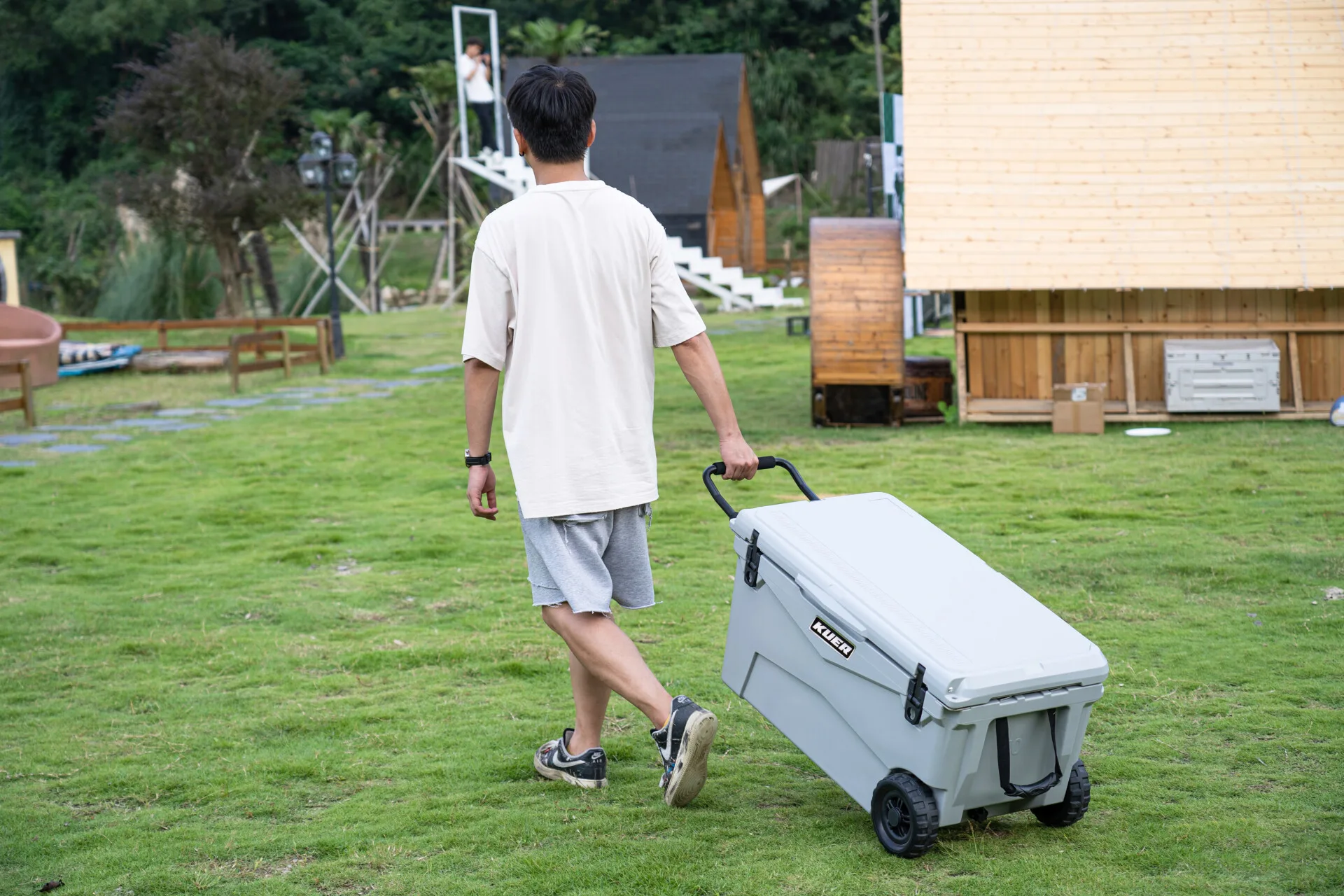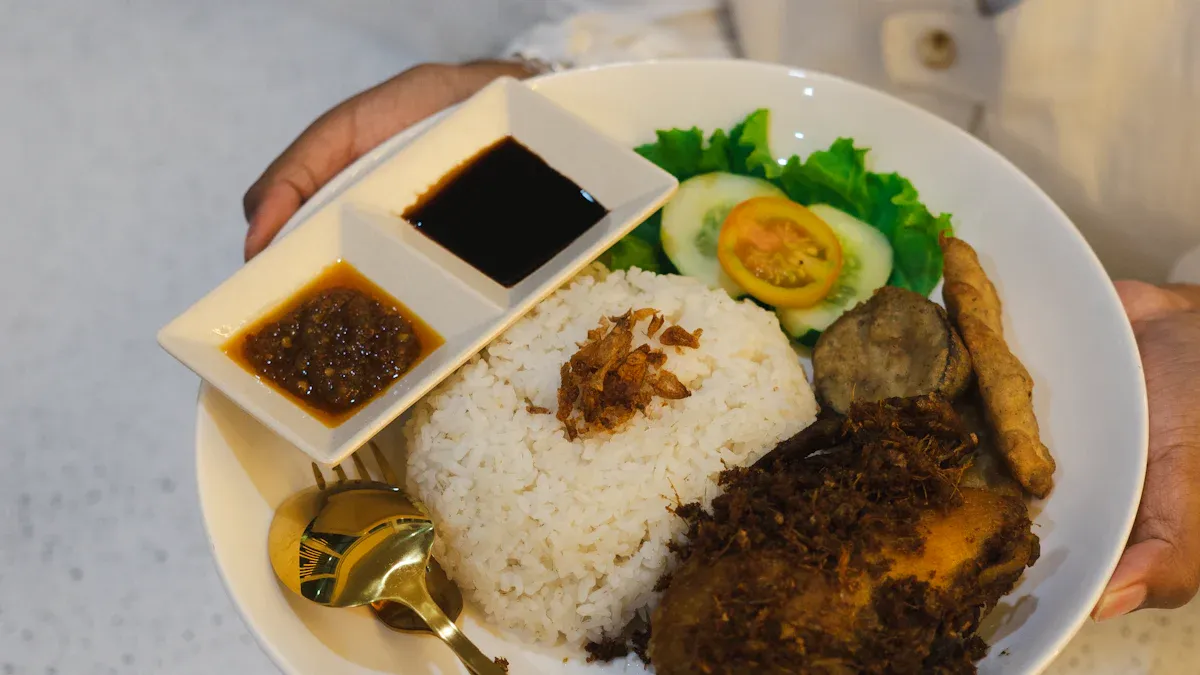
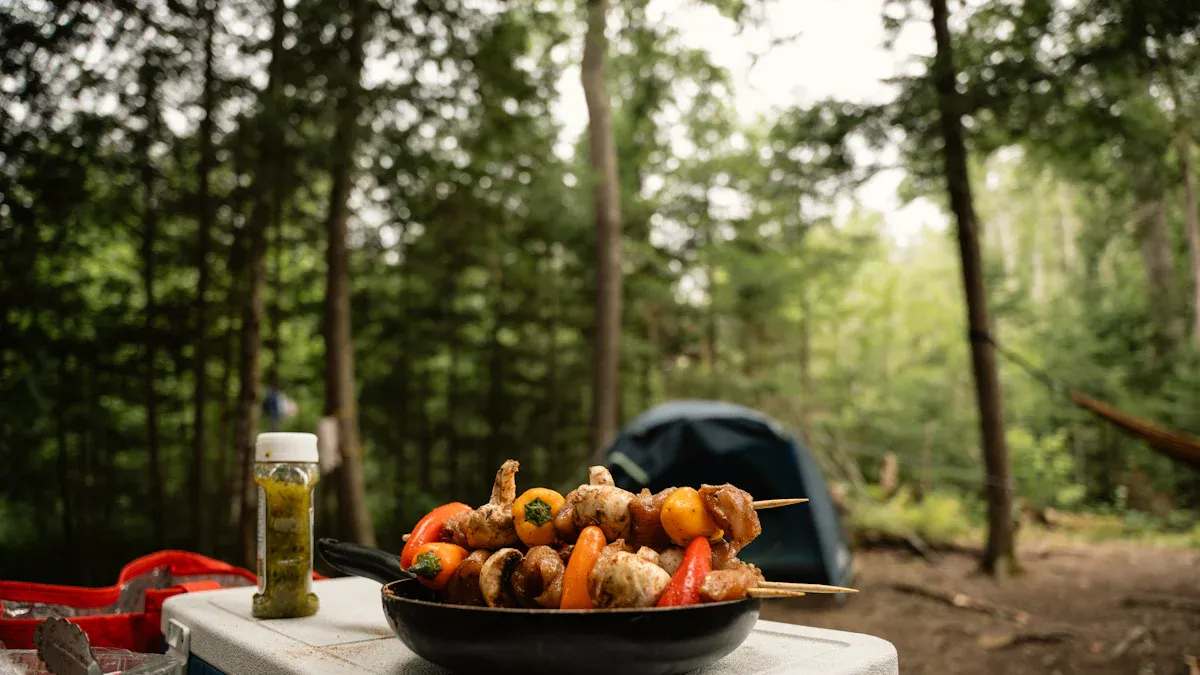
Planning your next camping adventure? A reliable cooler is your best tool for keeping food fresh and drinks cold. Finding the best cooler with top features can feel overwhelming.
The cooler market is huge, valued at over $1.65 billion in North America. You have many choices for your perfect cooler.
This guide simplifies your search for the best plastic ice cooler. We help you identify the best features in a top cooler for your camping trip. Let’s find the best cooler for your outdoor needs, a top cooler that is the best cooler for you.
Key Takeaways
- Choose your cooler size based on how long your trip is and how many people are with you. A bigger cooler holds more ice for longer trips.
- Look for coolers with thick insulation and a tight-sealing lid. These features keep your ice frozen for a longer time.
- Check the cooler’s latches, hinges, and handles. Strong parts make the cooler last longer and easier to carry.
- Consider extra features like wheels, a good drain plug, and dividers. These make your cooler easier to use and keep your food organized.
Sizing Your Cooler: Capacity and Portability for Camping
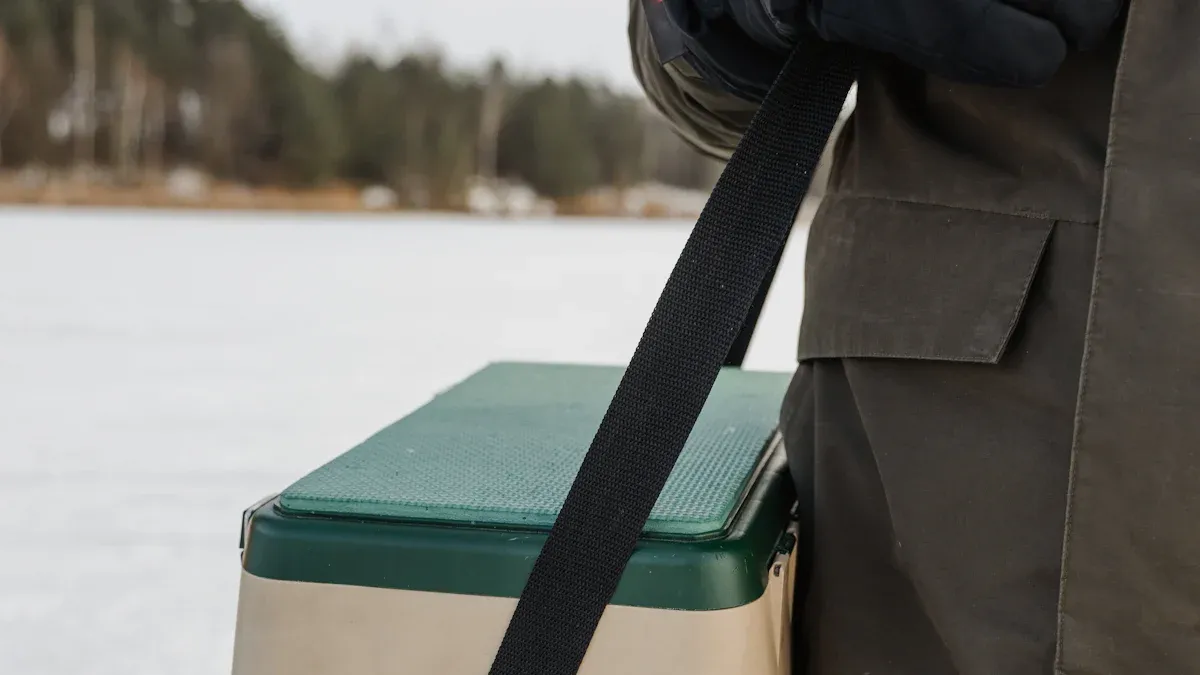
Choosing the right size cooler is the first step to a successful trip. You need a cooler that holds everything without wasting space or being too heavy. A lightweight cooler is great, but capacity is key. Let’s break down how to select the perfect cooler size for your needs.
Match Cooler Size to Trip Length
Your trip’s duration directly impacts the cooler size you need. A short overnight trip requires a much smaller cooler than a week-long excursion. You must plan for all your meals and drinks. A larger cooler holds more ice, which is essential for keeping food safe on longer trips.
Here is a general guide to match your cooler to your trip length:
| Trip Duration | Recommended Cooler Capacity (Quarts) |
|---|---|
| Weekend (2-3 days) | 45-75 |
| Week-long (5-7 days) | 75-125+ |
Account for Your Group Size
The number of people in your group is another major factor. A solo camper has different needs than a family of four. You need to calculate the total food and water required for everyone.
Pro Tip: A good rule of thumb is to plan for 1.5 to 2.5 pounds of food and about 2 gallons of water per person, per day.
For a weekend camping trip, consider these cooler sizes:
| Group Size | Recommended Cooler Size (Quarts) |
|---|---|
| Solo Camper | 45-quart |
| Family of Four | 65- or 75-quart |
Understand the Ice-to-Contents Ratio
Properly packing your cooler is just as important as its size. For the best performance, you should follow the recommended ice-to-contents ratio. Most manufacturers suggest a 2:1 ratio, meaning two-thirds of your cooler should be ice and one-third should be food and drinks. This ensures everything stays cold for the longest possible time.
To maximize ice life, use a mix of ice types.
- Block ice melts much slower than cubed ice. It is ideal for keeping the cooler cold over many days.
- Cubed ice is great for filling in gaps and cooling items down quickly.
Using block ice at the bottom of the cooler and cubed ice on top gives you the best of both worlds.
Check External Dimensions for Your Vehicle
You found a cooler with the perfect capacity. Now, you must ensure it fits in your vehicle. The external size of a cooler is often much larger than its internal volume suggests. Thick insulation and sturdy handles add significant bulk. A 75-quart cooler might not fit in the trunk of a small sedan. You need to measure your space before you buy a new cooler.
Take a tape measure to your car, truck, or SUV. Measure the area where you plan to put the cooler. Write down the maximum length, width, and height available. This simple step prevents a major headache later. Your ideal cooler must fit comfortably in this designated spot.
Pro Tip: Remember to leave extra room around the cooler. You need space to open the lid fully and to allow for air circulation. Also, consider the space that handles or drain plugs occupy on the cooler.
When you shop for a cooler, compare its external dimensions to your vehicle’s measurements. Pay close attention to the details.
- Length: Does the cooler fit lengthwise in your trunk or back seat?
- Width: Will the cooler slide in easily without being too tight?
- Height: Can you close your trunk or SUV hatch with the cooler inside?
Thinking about these measurements ensures your chosen cooler is a practical fit for your travels. A cooler you can’t transport is not the right cooler for you.
Finding the Best Coolers: Insulation and Durability
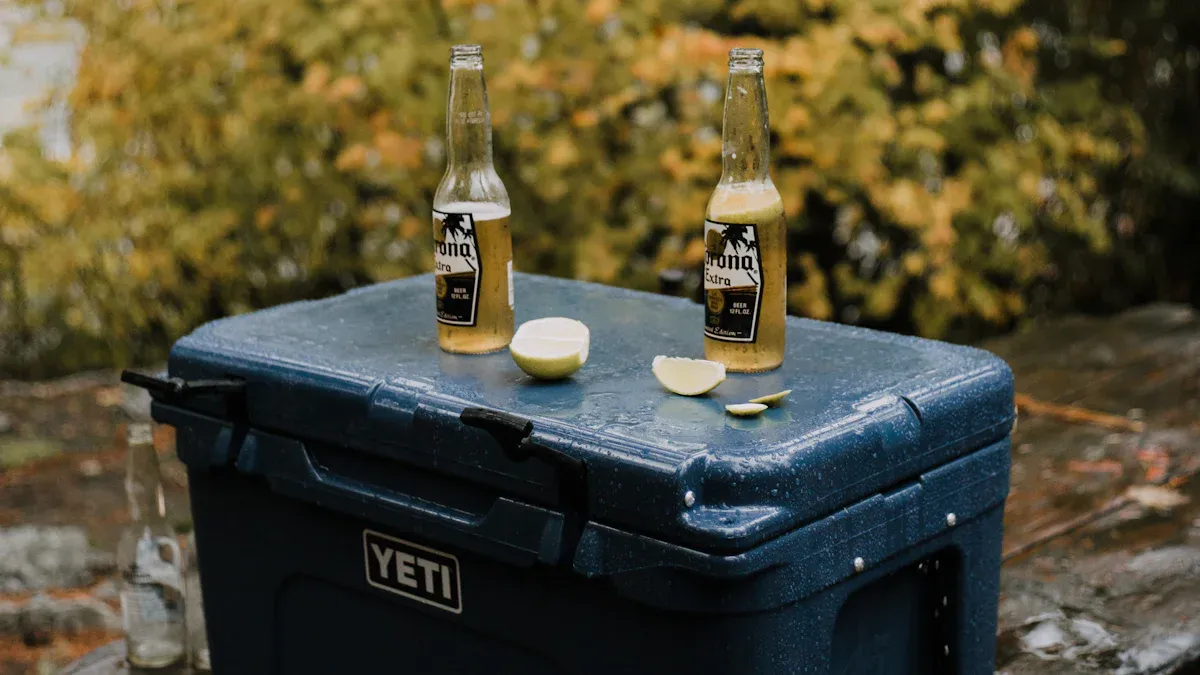
A cooler’s ability to keep ice frozen depends on its insulation and construction. The manufacturing process plays a huge role in performance and durability. Understanding these differences helps you choose the best cooler for your camping needs. Let’s explore the top features that define a high-performance cooler.
Rotomolded vs. Injection-Molded Coolers
You will find two main types of plastic coolers: rotomolded and injection-molded. Each method creates a different kind of product. Companies like KUER Group have mastered both manufacturing processes, offering a wide range of options.
Rotomolded coolers are made by pouring plastic into a mold that rotates on two axes. This process creates a single, seamless piece with thick, uniform walls. These coolers are known for their incredible durability and superior ice retention.
Injection-molded coolers are made by injecting molten plastic into a precise mold under high pressure. This method is faster and produces a lighter cooler. Injection-molded coolers can be up to 30% lighter than rotomolded models of a similar size.
The construction method directly impacts performance. Rotomolded coolers generally offer the best ice retention due to their thicker, denser walls.
| Cooler Type | Ice Retention (Days) |
|---|---|
| Rotomolded | Up to 5 |
| Injection-Molded | Shorter |
Note: Rotomolding creates a heavier cooler because it uses more plastic. This results in thick walls (3–15 mm) and dense insulation, making it the best choice for long-term ice retention.
Key Features for Maximum Ice Retention
Several key features work together to maximize a cooler’s performance. When you shop, look for these details to ensure you get the best ice retention possible.
- Thick Foam Insulation: The best insulated coolers use pressure-injected polyurethane (PU) foam. This foam fills every gap inside the cooler walls, creating a powerful barrier against outside heat. The thicker the insulation, the better the performance.
- Freezer-Style Lid Gasket: A top cooler needs an airtight seal. Look for a thick rubber gasket that runs along the entire rim of the lid. This feature traps cold air inside and keeps warm air out, which is critical for long-term ice retention.
- Secure Lid Latches: Heavy-duty latches pull the lid down tightly against the gasket. This completes the seal and prevents any air leaks.
- Cooler Color: The color of your cooler matters. Lighter colors reflect sunlight, while darker colors absorb it. A light-colored cooler can have an internal temperature 5-8°F cooler than a dark one in direct sun. This simple choice can add hours or even a day to your ice life.
These insulated features are essential for achieving maximum cooling power and extending the life of your ice.
Built to Last: Construction and Materials
A camping cooler must withstand rough handling. Durability comes from the materials and construction methods used. The best coolers are built to last for years.
Rotomolded coolers often use Linear Low-Density Polyethylene (LLDPE). This plastic is extremely tough and resistant to impacts. It is also UV-stable, so it will not become brittle or fade after long exposure to the sun. This makes it a top choice for outdoor gear.
Companies with strong research and development, like KUER, often hold patents on their designs. This shows a commitment to creating a durable, high-performance cooler.
Look for a cooler with a one-piece, seamless build. This design eliminates weak points where cracks or leaks could form. The best construction ensures your cooler can handle being dropped, dragged, and used as a seat. These are the features that define a truly rugged and reliable cooler for any adventure. Excellent retention is a key benefit of this strong build.
Essential Hardware: Latches, Hinges, and Handles
The body of a cooler provides insulation. The hardware holds it all together. You should inspect the latches, hinges, and handles on any cooler you consider. These components often determine the cooler’s lifespan and ease of use. The best hardware features ensure your cooler performs well for years.
Latches Lock in the Cold 🧊 Latches are one of the most important parts of your cooler. They pull the lid down tight against the gasket. This action creates an airtight seal. A perfect seal is essential for maximum ice retention.
Pro Tip: Look for heavy-duty rubber T-latches. You can easily open and close them with one hand, even with gloves on. They are durable and provide excellent pressure for a tight seal.
A weak latch will fail to seal your cooler properly. This lets cold air escape and warm air enter, which ruins your ice retention. The best latches are simple, strong, and secure. They are one of the top features of a high-performance insulated cooler.
Hinges Provide Strength and Stability 💪 The hinge is the backbone of your cooler lid. It endures constant stress every time you open and close your cooler. A broken hinge makes a cooler almost useless. The best coolers use robust hinge systems.
- Integrated Hinges: Many top rotomolded coolers have a full-length, molded-in hinge system. This design connects the lid and body with an interlocking system and a pin. It is incredibly strong and eliminates a common failure point.
- Standard Hinges: Other models use multiple smaller hinges screwed into the plastic. Make sure these are made from corrosion-resistant materials.
A strong hinge system is one of the best features you can find. It ensures your lid stays aligned, which helps maintain a good seal for better retention.
Handles Make Transport Manageable 🚶♂️ A fully loaded cooler is very heavy. Good handles are necessary for moving your cooler from your vehicle to the campsite. You will find a few common handle types.
| Handle Type | Best For |
|---|---|
| Molded-in Handles | Short lifts, tying down the cooler |
| Rope Handles | Carrying with two people, easier on your hands |
Many coolers offer both types of handles. This gives you the best flexibility. Rope handles make carrying the insulated cooler more comfortable over distances. Molded-in handles are great for quick adjustments or for securing the cooler with straps. The best handle setup makes your heavy cooler much easier to manage. These hardware features contribute significantly to the overall quality and retention of your cooler.
Must-Have Features for the Best Plastic Ice Cooler
Beyond insulation, certain features make a cooler easier to use and more reliable. The best cooler has thoughtful design elements that solve common camping problems. These top features can transform your outdoor experience. Let’s look at the must-have features for your next plastic ice cooler.
The Importance of a Good Drain Plug
A drain plug is a small but critical part of your cooler. A poor one can cause major issues. Some users report problems with their cooler leaking because the plastic around the drain shrinks over time. Others find water pools on the floor because the factory did not seal the drain properly.
A top cooler avoids these problems with a well-designed drain system. Some of the best models even offer two drain plugs. This offers a big advantage for cleaning.
- A dual-drain system can remove all meltwater in under five minutes.
- It leaves the cooler so dry that you only need a quick wipe afterward.
A reliable, leak-proof drain is one of the best features you can find.
Wheels and Handles for Easy Transport
A large plastic ice cooler full of ice and food is extremely heavy. Wheels can be a lifesaver. They allow you to easily roll your cooler from your car to the campsite without straining your back. Look for a cooler with rugged, oversized wheels that can handle uneven ground like dirt paths and grassy fields. Good handles work with the wheels to give you better control when pulling or lifting the cooler. These transport features make managing a heavy load much simpler.
Bear-Resistant Certification (Interagency Grizzly Bear Committee)
If you camp in bear country, safety is your top priority. A bear-resistant cooler is essential. The Interagency Grizzly Bear Committee (IGBC) provides the gold standard for certification. Many national parks require you to use an IGBC-certified container.
- Yellowstone National Park
- Grand Teton National Park
- Glacier National Park
- Denali National Park
To earn this certification, a cooler must pass a difficult test.
- Inspectors first check the cooler for any weak points.
- Food is placed inside to attract live grizzly bears.
- The cooler is left with the bears for 60 minutes of direct contact.
- The cooler passes only if the bears cannot break in.
This certification proves you have the best cooler for keeping your food and the bears safe.
Useful Extras: Dividers, Baskets, and Cup Holders
The best cooler models offer smart accessories that improve organization. These extra features make your cooler much more functional. Dividers and baskets are top features for keeping your food tidy and safe.
You can use these accessories to create zones inside your cooler. This helps you separate items and find them easily. Good organization also prevents food contamination.
- Use baskets to elevate items like sandwiches and produce away from ice melt.
- Place raw meat and poultry at the very bottom of the cooler.
- Use plastic dividers to create separate compartments for drinks, snacks, and meals.
Pro Tip: Many coolers have molded-in cup holders on the lid. This simple feature gives you a stable place to set your drink at the campsite. It is one of the best small features a cooler can have.
These useful features help you get the most out of your cooler.
Top Brands to Consider: Yeti, RTIC, and KUER
You will see a few top brands again and again when searching for the best cooler. Yeti, RTIC, and KUER are all excellent choices. Each brand offers a high-quality plastic ice cooler with unique features.
Yeti is known for its premium construction and strong brand reputation. RTIC offers a similar high-performance cooler at a more competitive price point. Independent tests show that the best cooler models from both Yeti and RTIC have nearly identical ice retention, keeping ice for over seven days.
KUER Group is another major player. The company is a comprehensive manufacturer with its own R&D team and over 50 patents. It produces rotomolded, injection-molded, and blow-molded products. This expertise allows KUER to create a durable, top-performing cooler.
Here is a quick comparison of popular 45-quart models:
Choosing between these brands often comes down to your budget and warranty preference. All three offer a fantastic cooler with great features.
Selecting the best plastic ice cooler for camping is a balance of size, performance, and top features. You can find the best cooler for your outdoor needs by focusing on build quality for the best retention. A top cooler with great features ensures long-lasting ice retention. This makes your outdoor camping trip more comfortable. The best cooler is a great cooler. This cooler is a top cooler. Your cooler choice matters. This cooler is the best cooler.
FAQ
How do I pre-chill my cooler for the best performance?
You can easily prepare your cooler for a trip. Bring it inside 24 hours before you pack. Fill it with a bag of sacrificial ice. This action cools the insulation itself. The best performance comes from a cooler that is already cold.
What is the best way to pack my cooler?
You should use a 2:1 ice-to-contents ratio for the best results.
- Place block ice on the bottom.
- Add your food and drinks.
- Fill all remaining space with cubed ice.
This is the best packing strategy. It ensures top performance and longer ice life.
Can I use dry ice in a plastic cooler?
You must check your manufacturer’s guidelines first. Dry ice is very cold and can damage some plastics. Many top rotomolded models can handle it. The best practice is to wrap the dry ice in newspaper. This is the best top safety tip.

